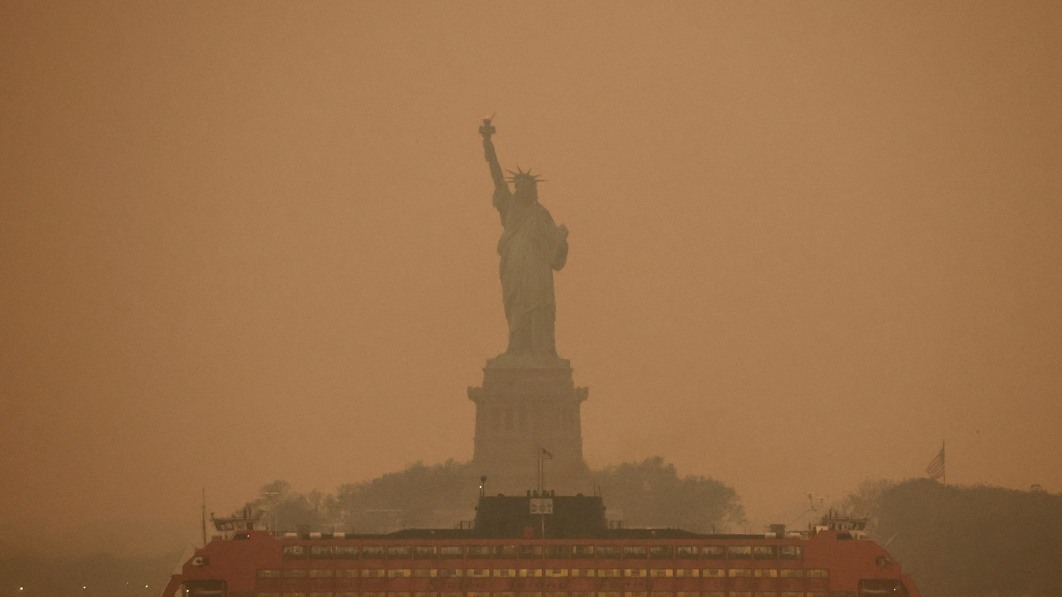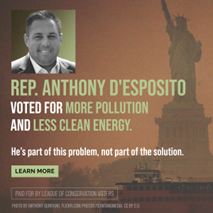

Washington, D.C.: The League of Conservation Voters is releasing new ads calling out New York Representatives Williams (NY-22), Stefanik (NY-21), and D’Esposito (NY-04) who voted for the “Polluters Over People Act”, which anti-environment Republican leadership designated H.R. 1. The ads follow several days earlier this month where the entire state was blanketed in wildfire smoke caused by climate fueled Canadian wildfires. For several days, New York had some of the worst air quality in the world.

Ads will run on digital and social channels throughout the three New York districts.
“These members voted against the best interests of their own constituents to keep the extreme MAGA members and big oil donors happy,” said Eva Estrada, LCV Regional Campaigns Director. “New Yorkers understand how serious the climate crisis is and saw the consequences of inaction when the state was choked with climate fueled wildfire smoke for days. We need leaders who are ready to invest in solutions like clean energy, not those that are still standing with our biggest polluters.”
House Republicans chose H.R. 1 as their #1 bill in the new Congress, a bill that would have sped up the build out of destructive oil and gas infrastructure like pipelines while stripping away the ability for communities to have meaningful input. And it would have taken away clean energy rebates and investments that would lower costs for families by making it more affordable for them to increase the energy efficiency of their homes and appliances. This bill would benefit polluters in the oil, gas, chemical, and mining sectors at the expense of working people and families. The legislation would lock the United States into harmful fossil fuel production for decades despite the IPCC’s recent warnings of climate catastrophe and climate fueled disasters like hurricanes and wildfires becoming more and more common.
###